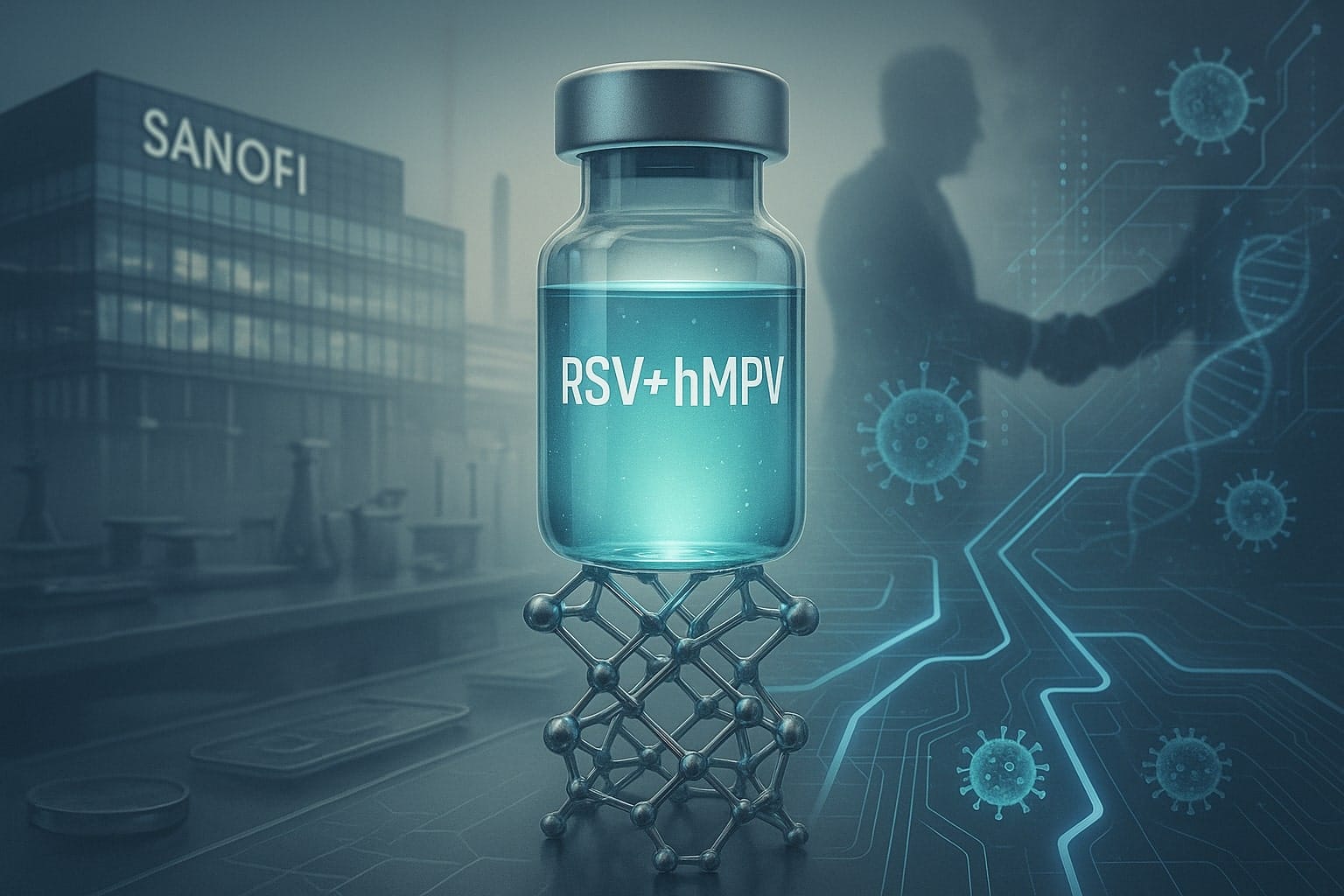BioArctic, a Swedish biotechnology company renowned for its innovative approach to neurodegenerative diseases, has made significant strides in Alzheimer’s research. The company’s groundbreaking drug, Leqembi, developed in collaboration with Eisai, was the first to demonstrate a slowing of Alzheimer’s disease progression. Despite this success, a formidable challenge persists in the realm of neurological therapeutics: the blood-brain barrier (BBB). This selective barrier protects the brain from harmful substances but also impedes the delivery of potentially beneficial drugs. Addressing this obstacle, BioArctic has developed the BrainTransporter technology, designed to facilitate the passage of therapeutic agents across the BBB. This article delves into the intricacies of the BBB, explores BioArctic’s innovative solution, and examines its potential to revolutionize treatments for neurological disorders.
Table of Contents
ToggleThe Challenge: Why Crossing the Blood-Brain Barrier Is Difficult
The blood-brain barrier is a specialized network of endothelial cells forming tight junctions that meticulously regulate the movement of substances between the bloodstream and the brain. This barrier serves a dual purpose: it shields the central nervous system from toxins and pathogens, thereby preserving neural function, but it also restricts the entry of many therapeutic agents. The BBB’s selective permeability is attributed to its unique structure, which includes:
- Tight Junctions: These connections between endothelial cells prevent the passive diffusion of most molecules, ensuring that only specific substances can traverse into the brain tissue.
- Efflux Transporters: Proteins such as P-glycoprotein actively expel foreign substances back into the bloodstream, reducing drug accumulation within the brain.
- Enzymatic Activity: Enzymes present within the BBB can metabolize and inactivate certain drugs before they reach their neural targets.
Consequently, over 98% of small-molecule drugs and nearly all large-molecule therapeutics are unable to cross the BBB in therapeutically relevant concentrations. This presents a significant hurdle in treating central nervous system disorders, as many potential drugs are rendered ineffective due to their inability to reach the brain. Traditional methods to overcome this barrier, such as osmotic disruption or direct intracerebral injections, often pose substantial risks and lack precision, underscoring the need for more targeted and less invasive strategies.
BioArctic’s Breakthrough: The BrainTransporter Technology
In response to the challenges posed by the BBB, BioArctic has pioneered the BrainTransporter technology, a novel approach that enhances the delivery of therapeutic antibodies to the brain. This platform capitalizes on the natural transport mechanisms of the BBB, specifically targeting the transferrin receptor (TfR), which facilitates the uptake of iron into the brain.
Mechanism of Action:
- Targeting the Transferrin Receptor: Therapeutic antibodies are engineered to bind to the TfR, exploiting the receptor-mediated transcytosis pathway to gain entry into the brain.
- Enhanced Brain Penetration: By utilizing this pathway, the BrainTransporter technology has demonstrated a remarkable 70-fold increase in brain penetration of antibodies in preclinical models.
- Safety Profile: Importantly, this method maintains a favorable safety profile, minimizing potential adverse effects associated with increased central nervous system exposure.
Preclinical studies have showcased the potential of this technology, with animal models exhibiting significantly improved delivery of therapeutic antibodies to the brain. These promising results have paved the way for further development and eventual clinical testing in humans.
In December 2024, BioArctic entered into a global license agreement with Bristol Myers Squibb (BMS) to advance the development of Alzheimer’s treatments utilizing the BrainTransporter platform. This collaboration aims to accelerate the translation of this innovative technology from bench to bedside, potentially offering new therapeutic avenues for patients suffering from Alzheimer’s disease and other neurological conditions.

Strategic Partnerships and Industry Adoption
BioArctic’s innovative BrainTransporter technology has garnered significant attention within the pharmaceutical industry, leading to strategic collaborations aimed at advancing treatments for neurological disorders.
The Bristol Myers Squibb (BMS) Partnership:
In December 2024, BioArctic entered into a global exclusive license agreement with Bristol Myers Squibb for its PyroGlutamate-amyloid-beta (PyroGlu-Aβ) antibody program, which includes the antibodies BAN1503 and BAN2803. This partnership is structured to provide BioArctic with an upfront payment of $100 million, with potential milestone payments reaching up to $1.25 billion, and tiered low double-digit royalties on global product sales. Notably, BAN2803 incorporates BioArctic’s BrainTransporter technology, designed to enhance the delivery of therapeutic antibodies across the blood-brain barrier. Under the terms of the agreement, Bristol Myers Squibb assumes responsibility for the development and commercialization of these antibodies worldwide, while BioArctic retains an option to co-commercialize the products in the Nordic region.
Industry Interest and Potential Applications:
Beyond the collaboration with Bristol Myers Squibb, BioArctic is actively engaging in discussions with other major pharmaceutical companies to license its BrainTransporter technology. This interest stems from the potential to rejuvenate existing drugs that previously faced challenges in crossing the blood-brain barrier or required high doses leading to adverse effects. Companies such as Roche and Denali Therapeutics are also exploring blood-brain barrier transport technologies, indicating a broader industry trend towards overcoming this critical hurdle in neurological drug development.
Market and Financial Impact of BioArctic’s Innovation
The advancements in BioArctic’s technology and strategic partnerships have significantly bolstered the company’s financial standing and market presence.
Financial Performance:
In the fourth quarter of 2024, BioArctic reported net revenues of SEK 101.2 million, a substantial increase from SEK 11 million in the same period the previous year. This surge is largely attributed to growing royalties from Leqembi, the company’s Alzheimer’s drug developed in collaboration with Eisai. Royalty revenues alone increased by 38% to SEK 96.7 million in Q4 2024. Additionally, the company’s operating loss narrowed to SEK 53.5 million, compared to a loss of SEK 78.1 million in the corresponding period of 2023.
Stock Market Response:
The positive financial trajectory and strategic alliances have been well-received by investors. Shares of BioArctic, listed in Sweden, have risen more than 10% over the past year, reflecting growing confidence in the company’s direction and technological innovations.
Regulatory and Market Expansion:
Leqembi has achieved approval in 10 markets, though it awaits authorization in Europe. The successful integration of BrainTransporter technology into therapeutic development could pave the way for accelerated regulatory approvals and expanded market reach for BioArctic’s pipeline of neurological treatments.
The Future of BrainTransporter Technology
BioArctic’s BrainTransporter technology holds promise for transforming the treatment landscape of neurological diseases.
Upcoming Clinical Trials and Milestones:
The collaboration with Bristol Myers Squibb is set to advance the PyroGlu-Aβ antibody program into clinical trials, with BAN2803 expected to enter this phase within the next two years. These trials will be pivotal in assessing the safety and efficacy of the BrainTransporter technology in humans, potentially validating its utility in enhancing drug delivery to the brain.
Broader Implications for Neurological Disorders:
While initial applications focus on Alzheimer’s disease, the versatility of the BrainTransporter platform suggests potential applicability across a spectrum of neurological conditions, including Parkinson’s disease, amyotrophic lateral sclerosis (ALS), and other central nervous system disorders. By facilitating the efficient delivery of therapeutic agents across the blood-brain barrier, this technology could address a longstanding challenge in neuropharmacology, leading to more effective treatments.
Expert Perspectives:
Industry experts recognize the potential of BioArctic’s innovation. Per-Ola Freskgård, BioArctic’s vice-president of science and technology, noted that overcoming the blood-brain barrier has been a significant issue in the industry, and the BrainTransporter technology offers a promising solution.
Conclusion
BioArctic’s development of the BrainTransporter technology marks a significant advancement in the field of neurological therapeutics. By addressing the formidable challenge of the blood-brain barrier, this innovation has the potential to enhance the efficacy of treatments for a range of central nervous system disorders. Strategic partnerships, notably with Bristol Myers Squibb, underscore the industry’s confidence in this approach and pave the way for accelerated development and commercialization of novel therapies. As clinical trials progress and further applications are explored, BioArctic stands at the forefront of a transformative era in neuropharmaceuticals, offering renewed hope for patients worldwide.












